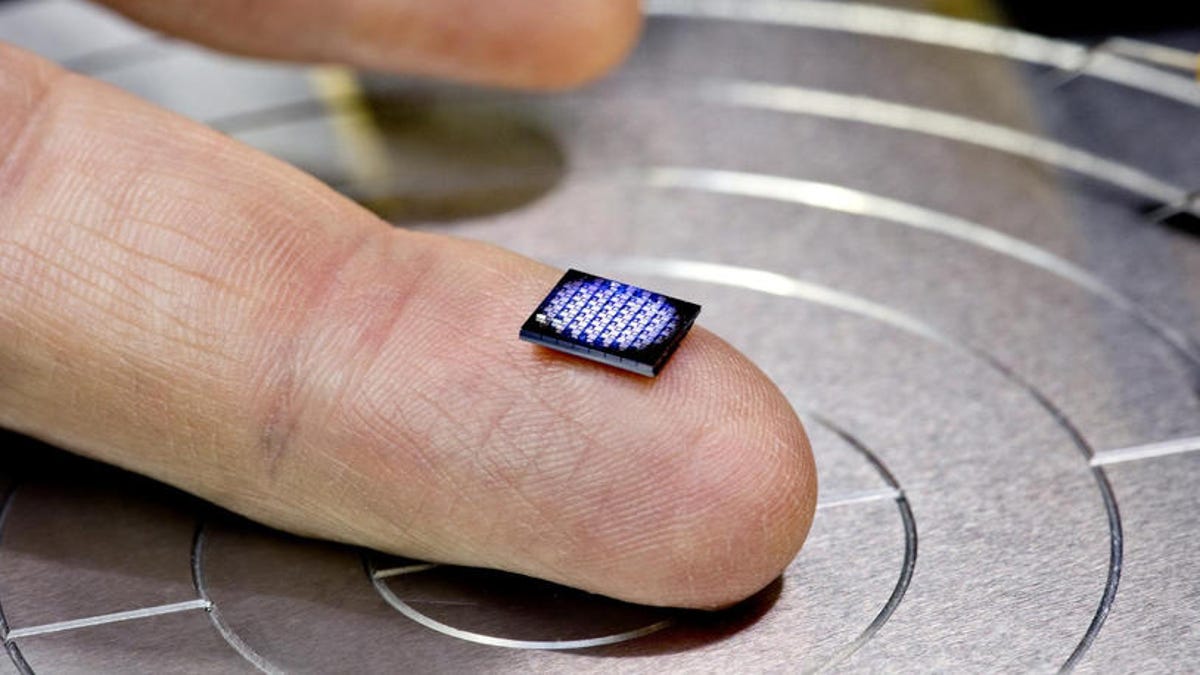IBM fighting counterfeiters with world's smallest computer
Astoundingly tiny, the computer will use blockchain tech to help verify product authenticity.

This board holds 64 motherboards and two of IBM's new computers visible as a raised chips on the far left corner of the board.
It's smaller than a grain of salt, but it could soon help guarantee that the products you buy are the real deal and not a knockoff.
At IBM's Think 2018 conference, the company announced the creation of the world's smallest computer that despite its size and cost (each will be less than 10 cents to make) can "monitor, analyze, communicate and even act on data." Each computer can hold as many as one million transistors, while network communication is handled by LEDs and a solar cell provides power.
The computer is a cryptographic or trust anchor that can be embedded in objects and devices and, with the help of blockchain's distributed ledger technology, can ensure a product's authenticity from its origin straight to your hands, according to a blog post by IBM research chief Arvind Krishna.
"These technologies pave the way for new solutions that tackle food safety, authenticity of manufactured components, genetically modified products, identification of counterfeit objects and provenance of luxury goods," said Krishna in the post.
IBM says clients could have samples in the next 18 months and within the next five years they'll reach the marketplace.

